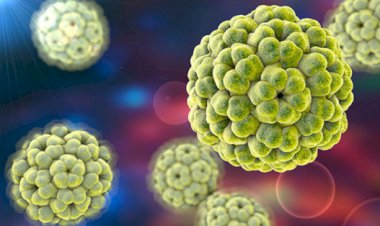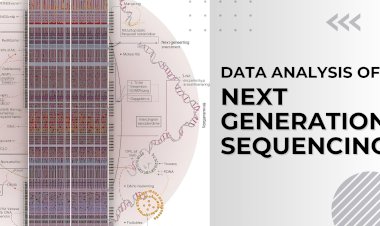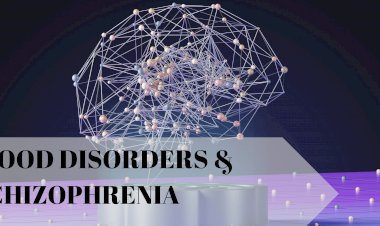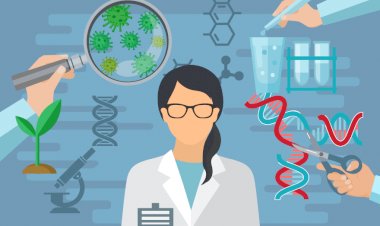Schizophrenia & Mood Disorders: How Genetics Shape Our Mental Health
Explore how genetics shape mental health disorders like schizophrenia and mood disorders. Learn about key genetic factors involved and recent research breakthroughs in the understanding and treatment of these complex conditions.
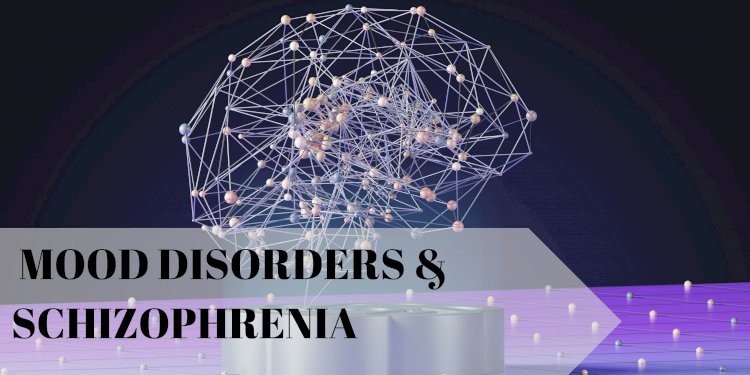
Schizophrenia & Mood Disorders: How Genetics Shape Our Mental Health
A person’s life can be significantly impacted by complex mental illnesses like schizophrenia and mood disorders like bipolar disorder and depression. Environmental factors and genetic predispositions interact intricately in the multifactorial pathogenesis of these disorders. Even though the exact mechanisms are still not fully understood, research has made great strides in identifying important genetic factors that contribute to the development of mood disorders and schizophrenia. Improved knowledge, diagnosis, and possible treatments for these disorders have been made possible by these genetic discoveries (Mayo Clinic, 2024).
- Schizophrenia
Schizoaffective disorder is a mental health condition that mixes symptoms from mood disorders (including depression, mania, and hypomania) and schizophrenia (including hallucinations and delusions). Delusions occur when someone believes something that is untrue or unreal. There are two forms of schizoaffective disorder, which share some characteristics with schizophrenia:
- Bipolar type, characterized by periods of mania or hypomania and occasionally severe depression.
- Depressive type, which only includes major depressive episodes.
Individuals with schizoaffective disorder can experience changes in thinking, feeling, and acting, making it difficult to function in social situations, at work, or in school. Loneliness is also a common effect of this disorder (Mayo Clinic, 2024).
- Mood Disorders
Mood disorders, also known as affective disorders, are characterized by significant emotional disturbances, either severe lows (depression) or highs (hypomania or mania). These disorders are prevalent and raise both morbidity and mortality rates. The Diagnostic and Statistical Manual of Mental Disorders, Fifth Edition (DSM-5), classifies mood disorders into two broad categories: bipolar disorder and depressive disorder (NCBI, 2021). Bipolar disorder is further categorized into bipolar I, bipolar II, cyclothymic disorder, and other subtypes.
Genes Involved in Schizophrenia
Recent molecular genetic research into schizophrenia has uncovered several candidate genes that may contribute to its development. Notable genetic factors include neuregulin (NRG-1), dysbindin (DTNPB1), and catechol-O-methyltransferase (COMT) (PMC, 2012). Research has shown that the following genes play important roles:
- Neuregulin (NRG-1) – Located on chromosome 8p21-p12, this gene has consistently shown a significant association with schizophrenia. NRG-1 influences neurodevelopment, including neuronal migration and cellular differentiation (PMC, 2012).
- Dysbindin (DTNPB1) – Found on chromosome 6p22.3, this gene is involved in synaptic formation and maintenance, particularly in areas of the brain implicated in schizophrenia (PMC, 2012).
- G72 and D-amino Acid Oxidase (DAAO) – The discovery of G72 marked a significant finding in schizophrenia genetics. The interaction between G72 and DAAO is believed to influence glutamatergic transmission, a key process in schizophrenia (PMC, 2012).
- Catechol-O-methyltransferase (COMT) – COMT is involved in dopamine metabolism and is a candidate gene in schizophrenia research, with multiple polymorphisms potentially contributing to schizophrenia susceptibility (PMC, 2012).
Genes Involved in Mood Disorders
Mood disorders like major depressive disorder (MDD) and bipolar disorder involve disturbances in mood regulation. Both genetic and environmental factors contribute to these disorders. Key genes influencing neurotransmitter systems and circadian rhythms include:
- SLC6A4 (Serotonin Transporter Gene) – This gene regulates serotonin reuptake, and variants in it are linked to an increased risk of depression, especially under stress (PMC, 2022).
- BDNF (Brain-Derived Neurotrophic Factor) – BDNF supports neuroplasticity and neuronal survival. The Val66Met polymorphism of BDNF is associated with mood disorders, especially depression and bipolar disorder (PMC, 2022).
- CLOCK (Circadian Locomotor Output Cycles Kaput) – The CLOCK gene regulates circadian rhythms, crucial for sleep-wake cycles and mood regulation. Variants in CLOCK contribute to mood disorders like bipolar disorder and depression (PMC, 2022).
Recent Research in Schizophrenia and Mood Disorders
Recent advancements in the treatment of schizophrenia and mood disorders have led to promising new therapies and better understanding of the conditions:
- Schizophrenia:
- New treatments like KarXT have shown promise in reducing both positive and negative symptoms of schizophrenia (Paul & Correll, 2024).
- Studies suggest that schizophrenia and aging may share common biological pathways, particularly in gene activity within brain cells (Harvard Medical School, 2024).
- Mood Disorders:
- Microbiome influence: Research suggests that the gut microbiome may play a role in mood disorders. For example, faecal microbiota transplants have shown potential in treating conditions like bipolar disorder (New York Post, 2025).
- GLP-1 Medications: GLP-1 medications, developed for diabetes, are being explored for their antidepressant effects (New York Post, 2025).
- Bipolar Disorder Prevalence: The prevalence of bipolar disorder in adolescents and young adults has increased since 1990 (Mayo Clinic, n.d.).
These findings highlight the complex biological and environmental factors influencing both schizophrenia and mood disorders and suggest the potential for improved treatments (Wellcome Trust, 2024).
Enhancing Mental Health Understanding Through IBRI Noida’s Specialized Training:
IBRI Noida offers specialized training and courses that are essential for advancing our understanding of mental health disorders, including schizophrenia and mood disorders. Their programs focus on cutting-edge research in genetics, genomic counselling, and biomedical technologies, providing healthcare professionals and researchers with the tools needed to explore the genetic factors contributing to these conditions. By enrolling in IBRI Noida's courses, individuals can enhance their knowledge of how genetics influences mental health, bridging the gap between scientific research and clinical practice, and contributing to improved patient care and treatment strategies.
Explore IBRI’s programs today to learn more about genomics trainings and unlock new career opportunities and stay ahead in the life sciences industry.
You can contact us at - Email: info@ibri.org.in or call at: (+91) 9999509892, 9971441910













